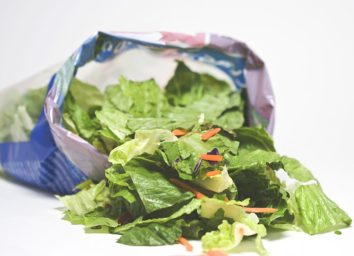These ‘Dirty Dozen’ Foods Have the Most Pesticides
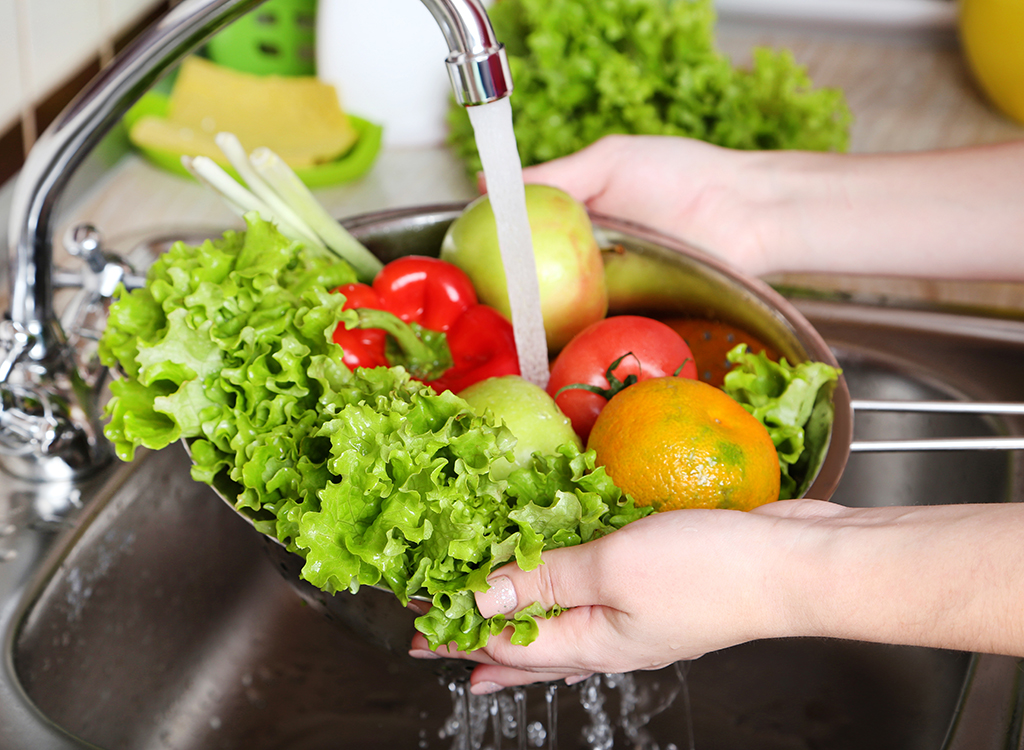
If you’re following the USDA’s recommendations and filling half of your plate with fruits and vegetables, we’re commending you for embarking on a path to better health. However, most of us don’t consider that forking into romaine may infect us with E. Coli and snacking on strawberries exposes our bodies to potentially toxic chemical and biological agents—pesticides—even after scrubbing them clean.
According to an analysis by the Environmental Working Group (EWG), nearly 70 percent of conventionally-grown produce showed pesticide contamination. And the levels of impurities were partial to certain fruits and vegetables over others.
In efforts to inform the public about the produce we buy, the EWG compiled a list of produce that contains relatively low levels of pesticides, also known as the Clean Fifteen. These include avocados, sweet corn, pineapples, cabbages, onions, frozen sweet peas, papayas, asparagus, mangoes, eggplants, honeydews, kiwis, cantaloupes, cauliflower, and broccoli.
While many of our go-to supper staples are in the safe zone, what’s more concerning is the EWG’s 2018 Dirty Dozen list, which singles out 12 of America’s most pesticide-ridden fruits and veggies. Below, you’ll find every item on the list ranked in order of contamination.
Strawberries
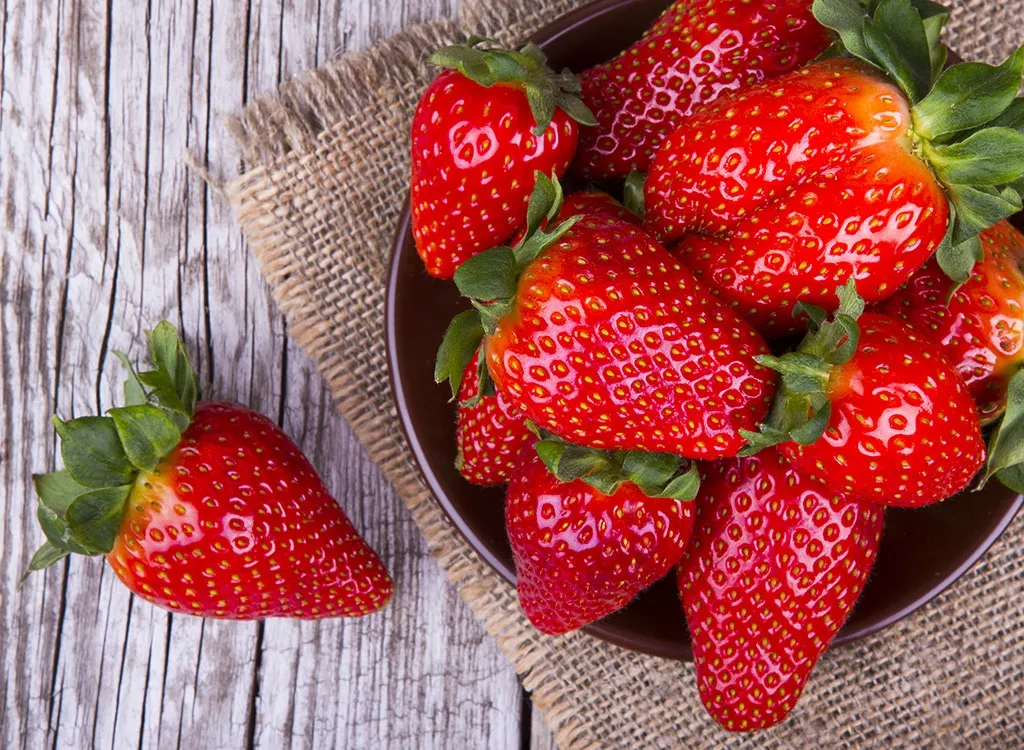
Strawberries scored the top spot on the list, showing the most pesticide residue of all fruits and veggies tested. Yikes!
Spinach

Following the ruby-red berry, your favorite leafy green clocked in at the second most-contaminated veggie. What’s more, spinach samples contained nearly twice as much pesticide residue by weight than any other crop!
Nectarines
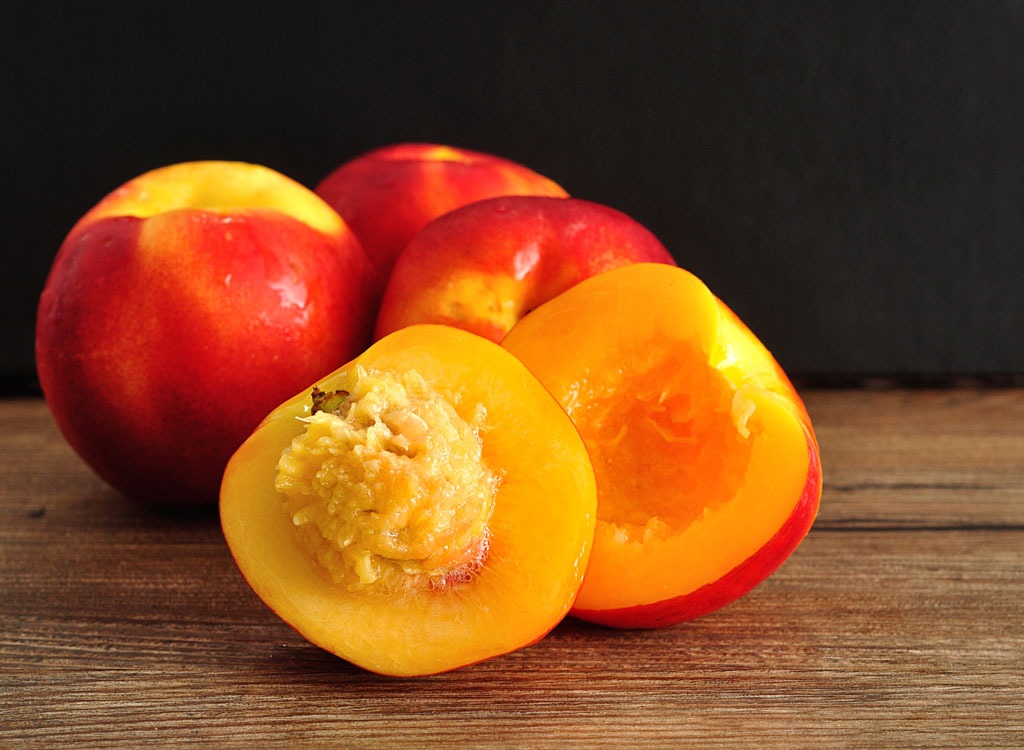
A whopping 98 percent of nectarine samples tested positive for at least one type of pesticide.
Apples
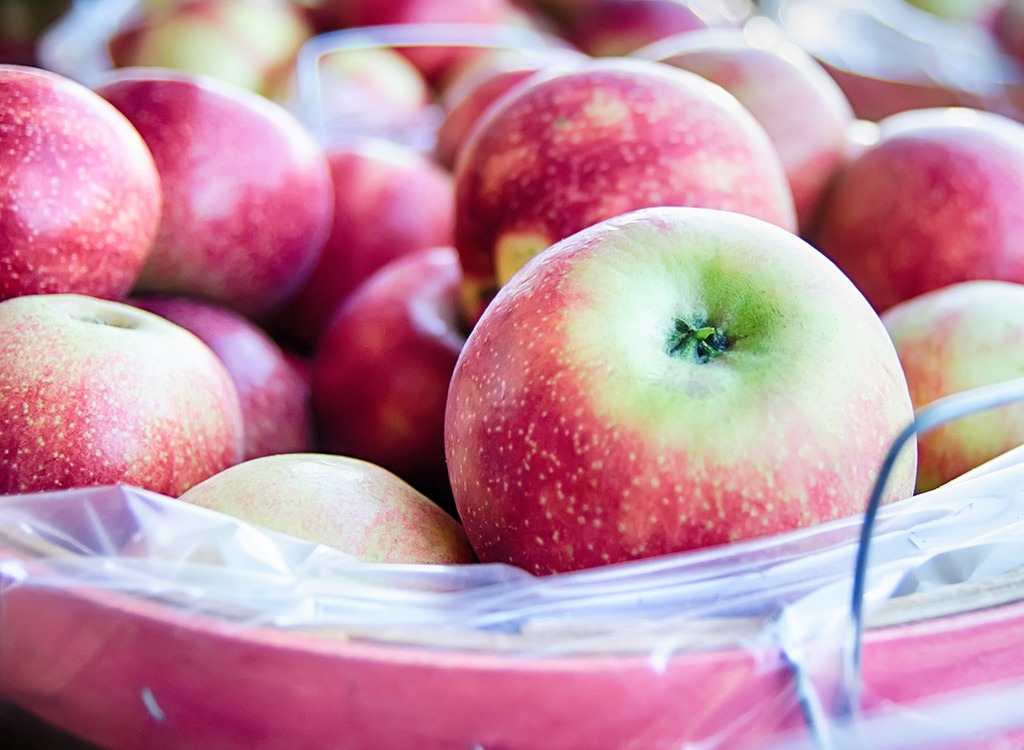
In addition to 98 percent of apple samples testing positive for at least one type of pesticide, applesauce scored high on the pesticide residue scale. Apple juice, on the other hand, scored low. Keep in mind that even if you’re applying the best way to wash an apple for pesticides, the contaminants may still be present on the crunchy snack.
Grapes
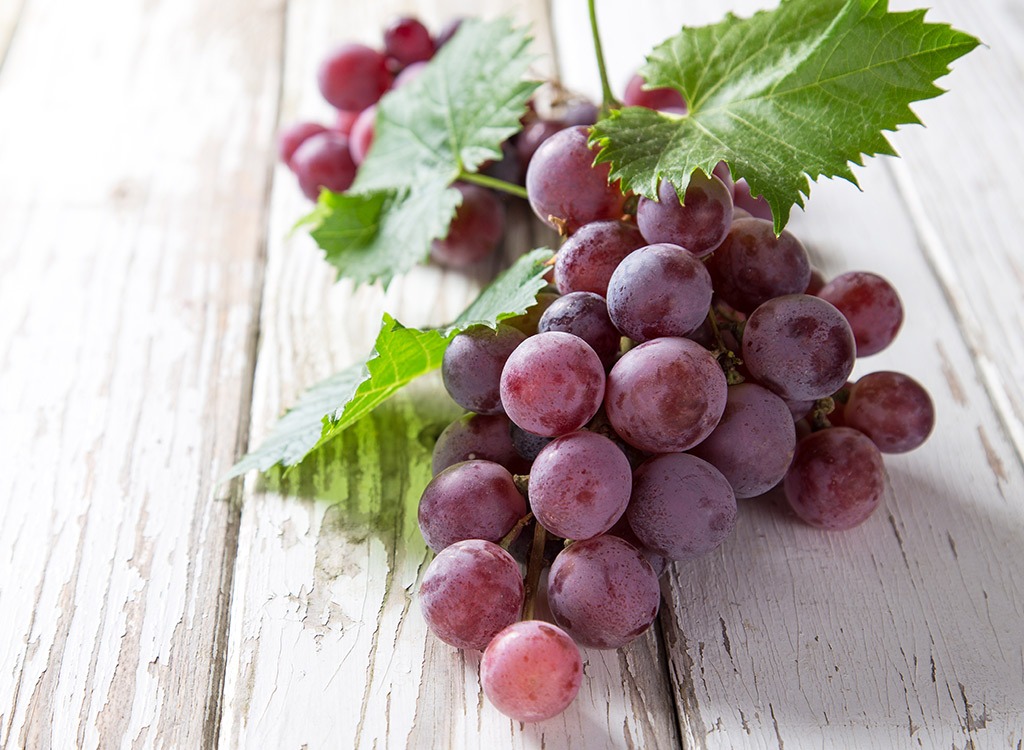
The resveratrol-rich fruit made the top five most contaminated produce list. When it comes to grapes, always grab the organic variety.
Peaches
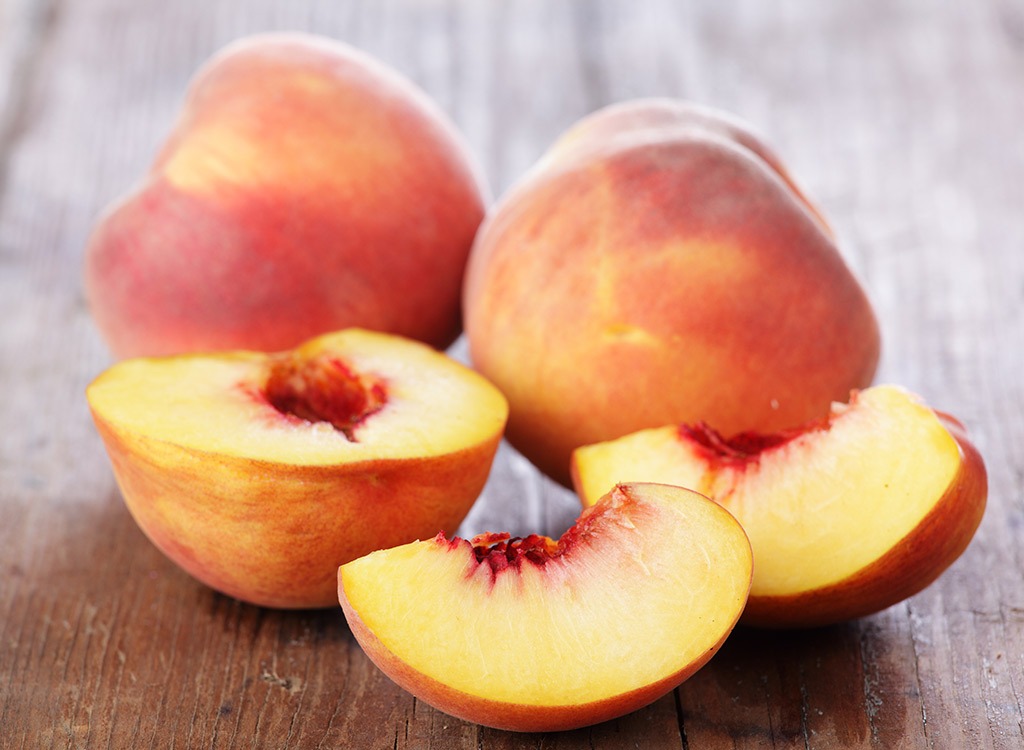
Peaches are a wonderful source of antioxidants, but the conventionally-grown variety is also brimming with pesticides. In fact, 98 percent of samples tested positive.
Cherries

Cherries have been shown to nix insomnia, but 98 percent of samples of this conventionally-grown bedtime snack tested positive for pesticides. That news alone may just keep us up all night.
Pears
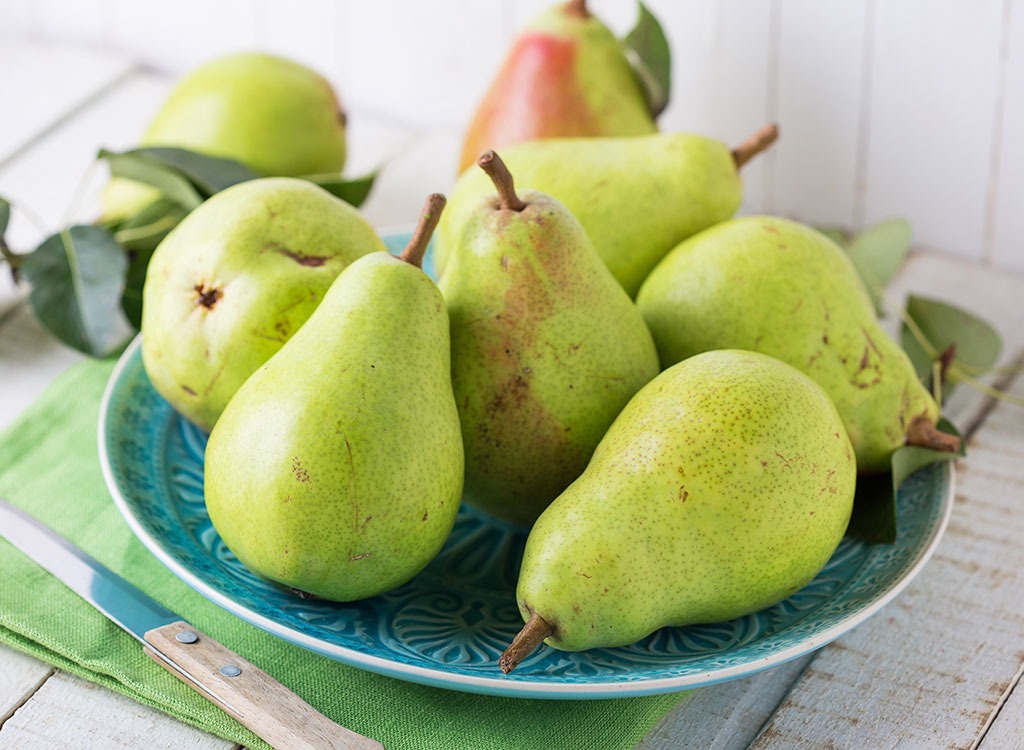
One of our best high-fiber foods may be loaded with satiating nutrients, but it’s also filled with havoc-wreaking pesticides if you don’t choose organic.
Tomatoes

Fortunately, tomato sauce boasts a low-to-moderate pesticide residue score. When you’re not whipping up a pasta dish, bulk up your salads with organic tomatoes only.
Celery
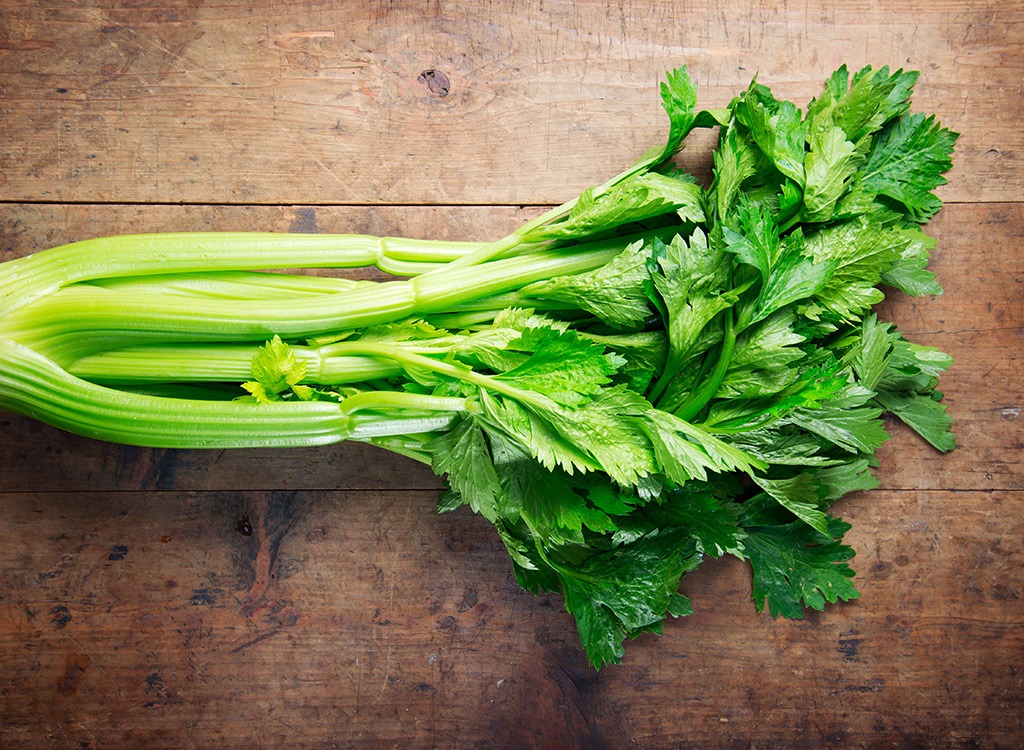
The epitome of calorie-free food made the EWG’s top 10 most pesticide-ridden produce.
Potatoes

The dinner staple is also a vessel for harmful pesticides but its honeyed cousin—sweet potatoes—scored low on the pesticide scale.
Sweet Bell Peppers
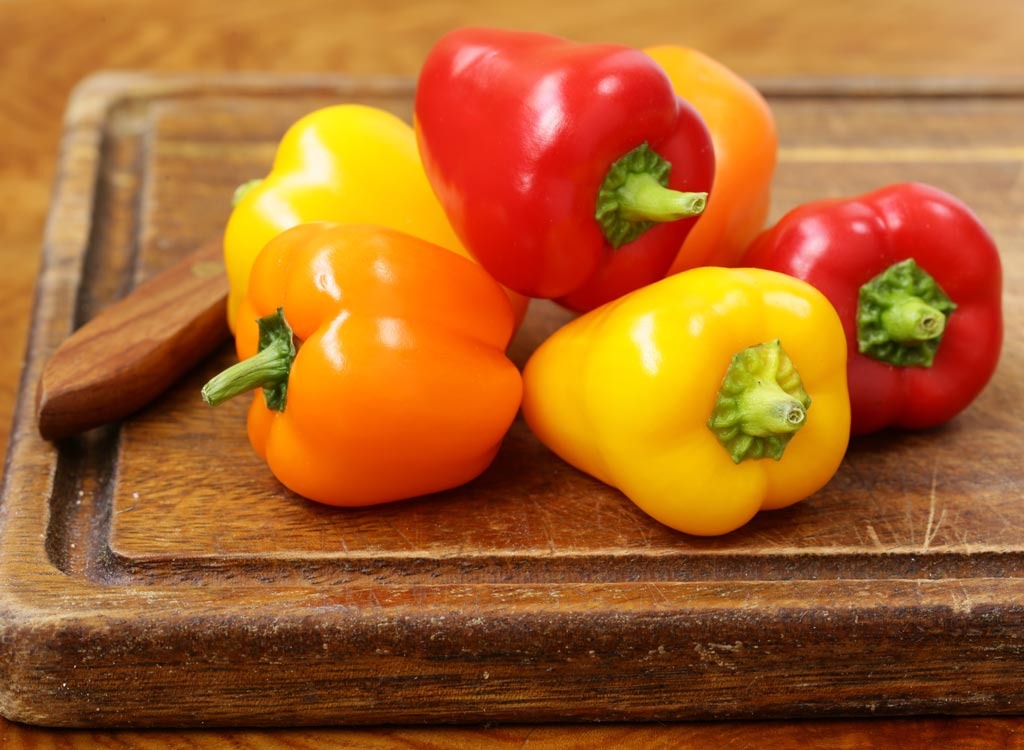
The last veggie of the Dirty Dozen ranked lowest on the list, meaning sweet bell peppers have more pesticides than other produce but less than the 11 preceding picks.
Bonus!
Hot Peppers
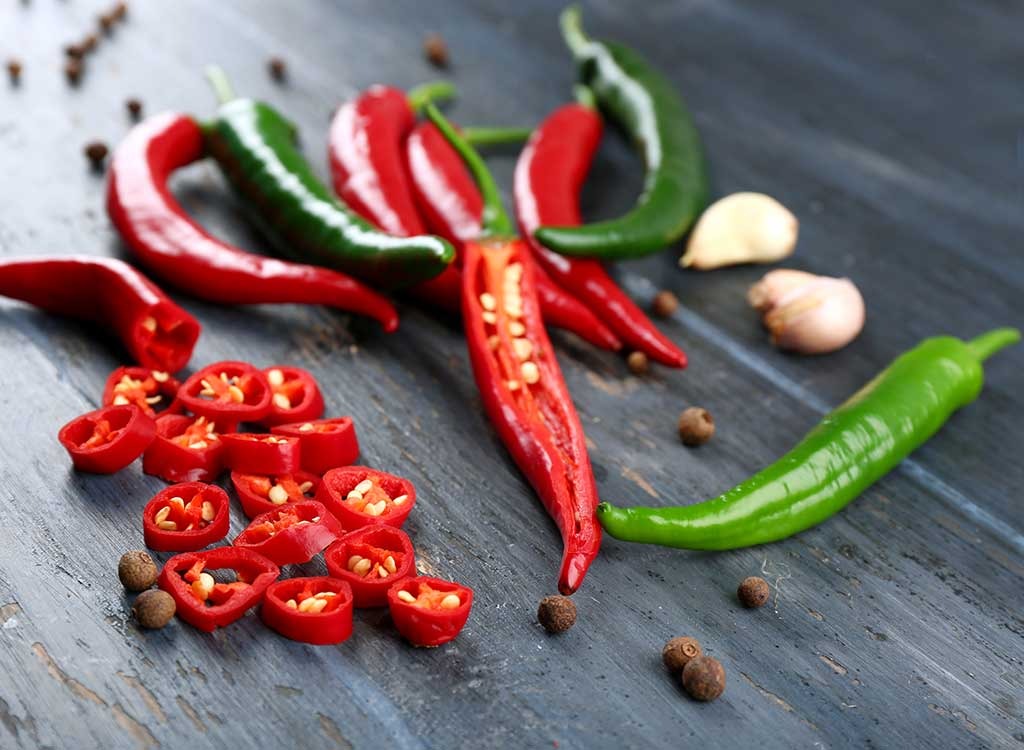
In addition to the Dirty Dozen, the EWG also found a thirteenth culprit: hot peppers. Since these metabolism boosters showed residues of three highly toxic insecticides, the EWG recommends buying organic hot peppers, adding that if you cannot find or afford organic hot peppers, your best bet is to cook them. “Pesticide levels typically diminish when food is cooked,” the report states.
If you’re guilty of stocking up on these 12 picks and incorporating them into your diet on a daily basis, don’t get discouraged and quit buying them altogether. Shelling out a bit of extra cash and buying organic is a simple solution to avoiding pesticides and reaping the benefits of these nutritious picks. Next time you make a trip to the market, head over to the organic section when shopping for the Dirty Dozen. And if you’re looking for more ways to improve your health, stick to these 200 Best Weight Loss Tips.
